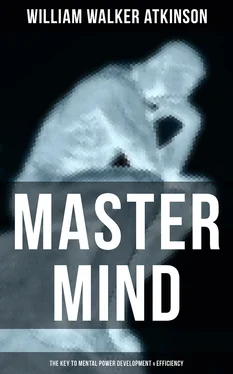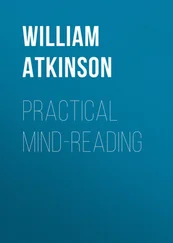In popular usage the term "sense" is commonly employed as identical with '' understanding,'' or "reason"; but in psychology the term has a far more restricted meaning. In psychology the term "sense" has the following meaning: "The faculty possessed by conscious creatures whereby they perceive external objects by means of impressions made upon certain organs of the body, or whereby they receive impressions concerning changes in the condition of the body." The term "sensation," in psychology, is defined as: "An impression made upon the mind through the medium of the nervous system, and usually through one of the organs of sense."
The senses are usually regarded as consisting of five general classes, each with its appropriate organism of sensation, as follows:
The Sense of Touch, or Feeling
The sense of Touch, or Feeling, is regarded by psychologists as the elementary sense—the one sense from which the others have evolved, and of which they are, in a way, an evolution. The sense of Touch, or Feeling, operates by means of certain nerves which have their endings in the outer covering or skin of the body, and also in the internal organism of the body. These nerves report to the mind their contact with outside objects; and, in some cases, certain changes of state or condition in the body itself. By means of this sense we are able to become aware of the size, form, shape and delight of material objects; of their degree of hardness, roughness, elasticity, etc.; of their temperature; and of other physical characteristics by which we distinguish one material object from another by means of respective reaction to our sense of Touch or Feeling. By means of this sense we also become aware of changes of state or condition in our bodies, such as thirst, hunger, sexual-feeling, and other "internal sensations."
The mechanism of the sense of Touch, or Feeling, is composed of many different and varied classes of nerve channels. This being so, the sense of Touch, or Feeling, is really a composite sense, manifesting diverse activities, principal among which are those of pressure, temperature, muscular resistance, pain, contact, etc. This diversity of activity is illustrated of the physiology of the senses: "A lesion which may cut off the possibility of feeling pain in a given part of the body, may leave it still susceptible to sensations of heat and cold; or the sensations of touch may be present while the sensation of pain cannot be aroused. From this we see that nerve impulses, giving rise to sensations of touch, of pain, of temperature, of the muscular sense, must pass upwards to the sensorium by different paths, one of which may be cut off while the others remain."
The sense of Sight, regarded by psychologists as an evolution of the elementary sense of Touch or Feeling, is regarded by the best authorities as the highest in the scale of the evolved senses. It manifests through a most complex organism and nerve- arrangement. The sense of Sight operates by means of registering the sensations of the intensity of the light waves, and the color vibrations thereof. The eye does not touch or feel the outside objects in order to "see" them; instead, it "touches" or "feels" the vibrations of the lightwaves coming in contact with the nervous matter of the organ of sight.
A leading text book on the subject of physiology describes the mechanism of the organ of sight as follows: "The optical apparatus may be supposed for the sake of description to consist of several parts. First, of a system of transparent refracting surfaces and media by means of which images of external objects are brought to a focus upon the back of the eye; and, secondly, of a sensitive screen, the retina, which is a specialized termination of the optic nerve, capable of being stimulated by luminous objects, and of sending through the optic nerve such an impression as to produce in the brain visual sensations. To these main parts may be added, thirdly, an apparatus for focusing objects at different distances from the eye, called 'accommodation.' Even this does not complete the description of the whole organ of vision, since both eyes are usually employed in vision; and forthly, an arrangement exists by means of which the eyes may be turned in the same direction by a system of muscles, so that binocular vision is possible. The eye may be compared to a photographic camera, and the transparent media corresponds to the photographic lens. In such a camera images of objects are thrown upon a ground-glass screen at the back of a box, the interior of which is painted black. In the eye, the camera proper is represented by the eyeball with its choroidal pigment, the screen by the retina, and the lens by the refracting media. In the ease of the camera, the screen is enabled to receive clear images of objects at different distances, by an apparatus for focusing. The corresponding contrivance in the eye is the 'accommodation.' The iris, which is capable of allowing more or less light to pass into the eye, corresponds with the different-sized diaphragms used in photographic apparatus." The "retina" of the eye, above mentioned, is a very sensitive membrane of nerve-matter lining the back of the eye, and being connected with the minute ends of the optic nerve; from the retina the impression is conveyed by the nerves to the brain.
The sense of Taste, another evolved sense, manifests by means of certain nerves terminating in tiny cells of the tongue, known as "taste buds"; the latter are stimulated chemically by objects brought in contact with them, the impulse being conveyed to the nerves, and by them transmitted to the brain. Physiologists classify the sensations of taste into five classes, viz., sweet, sour, bitter, salty, and "hot" (as in the case of pepper, etc.).
The sense of Smell, another evolved sense, manifests by means of delicate nerves terminating in the mucus membrane of the nostrils; the latter registering contact with minute particles of material objects entering the nostrils, and also registering differences in the chemical composition of such particles; the message of the nerve ends being transmitted to the brain. The particles of the "smelled" object must have actually entered the nostrils and have come in contact with these nerve ends in order to have been sensed. Mere nearness to the organ of smell is not sufficient—actual contact must be had, or we will smell nothing. We "smell" the rose only because minute particles of its substance are carried into our nostrils. We smell gas because some of its particles enter our nostrils.
The sense of Hearing, another evolved sense, manifest by means of delicate nerve terminating in the inner part of the ear. The eardrum, or "tympanum," vibrates in response to the air-vibrations or sound-waves reaching it from the outside; these vibrations are intensified, and the auditory nerve-ends take up the impression and pass it on to the brain. Sound-waves are sensed according to their characteristics of pitch, intensity, quality, and harmony, respectively.
The Offices of the Senses
The senses constitute the doors to the outside world, which when opened permit the entrance of messages from that world, but which, closed, bar the entrance of anything from without. Few of us ever stop to think how completely we are dependent upon these doors of the senses for our knowledge, our experience, and our objects of thought. We take it all for granted, and fail to perceive the importance of these senses. Only when one or more of the senses fail us do we begin to realize their importance, and the importance of sensations as a whole. It is only when we stop to think how completely shut in, and shutout, we would be if all of our senses were destroyed, that we begin to realize just how dependent we are upon the senses and sensation for our knowledge, our thoughts, our feelings, and our general mental life and being.
Читать дальше












